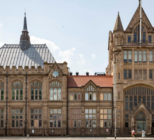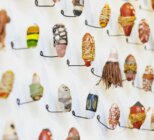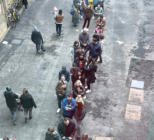A pilot project of experimental exhibition curation is to consider the museum experiences of children aged under three and their families.
Led by researchers at Manchester Met, ‘Things of the Least’ will use the Manchester Art Gallery collection as its basis.
The research, backed by the Arts and Humanities Research Council (AHRC), will generate a series of gallery and live public experiences, which take “a fresh look at the relationship between museum artefacts and public life.”
Based at Manchester Art Gallery’s Platt Hall in Rusholme, it will work with The Mary Greg Collection of over 4,000 objects of domestic life and childhood from the early 1800s-1900s.
Nine artists will translate the sensory and narrative qualities of selected objects from the collection into prototypes – sound or movement-based pieces, physical objects or digital artefacts specifically designed to engage children under three and their families.
A vocabulary of gestures, sounds and movements will be created as the children engage with the prototypes to incorporate their forms of encounters into reworked objects and installation forms.
Manchester Met says the research will explore the ways that very young children engage with the material world, and aims to “redress the lack of experimentation in exhibition-making with and for the under 3s by engaging audiences who do not usually connect with galleries, libraries, archives and museums.”
Local residents from South Asian, African Caribbean and white British communities alongside families displaced from their countries who are seeking sanctuary in Manchester are set to take part.
Rachel Holmes, Manchester Met’s Professor of Cultural Studies of Childhood, said the work ”will draw on contemporary art to push beyond boundaries of language, rhetoric and discourse, and foreground the very capable ways that young children engage with their environments through sensation, affect and movement as part of their world-making practices.”
AHRC Executive Chair, Professor Christopher Smith said the project will “unlock fresh ways for different and often overlooked audiences to experience our historical and cultural heritage, ensuring its value can be fully appreciated by many more people, and it will also inform all of our exhibition making.”









